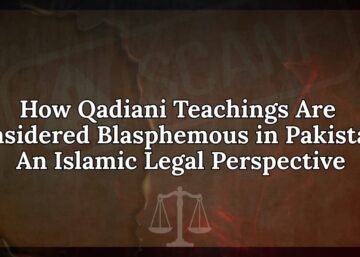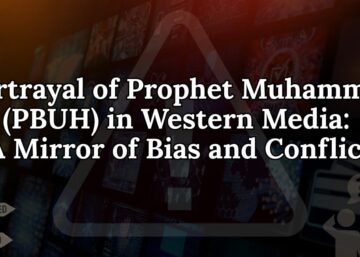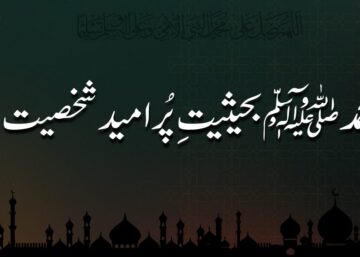One of the most significant criticisms against Mirza Ghulam Ahmad Qadiani, the founder of the Qadiani movement, is the inconsistency in his claims about when he became aware of being the “Promised Messiah” Prophet Esa (A.S). His writings show stark contradictions, which raise serious theological and rational concerns. This article aims to explore:
- Why he concealed his “messiahship” for 10 or 12 years.
- Whether a prophet can be ignorant of divine revelation.
- The alleged six signs of the Promised Messiah and their authenticity.
Contradictory Claims Regarding the Messiahship
Mirza Ghulam Ahmad gives two contradictory accounts about when he discovered his “divine status” as the Promised Messiah.
Claim in Ijaz-e-Ahmadi (1902)
“For nearly twelve years, which is a long period, I remained completely unaware and ignorant of the fact that God had declared me the Promised Messiah in Barahin-e-Ahmadiyya.”
(Ijaz-e-Ahmadi, p.7; Ruhani Khaza’in, vol. 19, p.113)
Claim in Aina-e-Kamalat-e-Islam (1893)
“By God! I knew for a long time that I had been made the Messiah, the son of Mary… but I concealed it, considering the interpretation… I remained firm on the traditional belief and withheld its expression for ten years.”
(Aina-e-Kamalat-e-Islam, p.551; Ruhani Khaza’in, vol. 5, p.551)
Analysis
- In Ijaz-e-Ahmadi, he claims ignorance for 12 years.
- In Aina-e-Kamalat-e-Islam, he swears by Allah that he knew it all along but kept it hidden for 10 years.
- These two claims cannot simultaneously be valid.
Can a Prophet Be Ignorant of Divine Revelation?
Mirza Qadiani wrote:
“God turned away my sight; I could not understand the revelation in Barahin-e-Ahmadiyya that declared me the Promised Messiah. This was my simplicity, which was a great proof of my truthfulness…”
(Ijaz-e-Ahmadi, p.7; Ruhani Khaza’in, vol. 19, p.114)
Question Arises:
- Can a prophet remain unaware of the meaning of his revelation for twelve years?
- Can he publish contradictory beliefs (e.g., the second coming of Jesus) during that period and still be considered truthful?
The Islamic Perspective
The Qur’an records that Prophet Jesus (AS), even as an infant, declared his prophethood:
“Indeed, I am the servant of Allah. He has given me the Scripture and made me a Prophet.”
(Surah Maryam 19:30)
Contrast this with Mirza Qadiani, who:
- Claims he misunderstood divine revelation for over a decade.
- Claims that writing against divine revelation was proof of his sincerity.
This notion is theologically absurd, as prophets are divinely protected from misguidance, especially in matters of revelation.
Conflicting Periods: Ten or Twelve Years?
The inconsistency in Mirza Qadiani’s timeline is also evident:
- Aina-e-Kamalat-e-Islam: 10 years of concealment.
- Ijaz-e-Ahmadi: 12 years of ignorance.
Question:
Which one is true, ten or twelve years? If he cannot recall the period of such a significant claim, how can one trust his divine authority?
False Attribution of Six Signs of the Promised Messiah
In Arba’een, Mirza Qadiani wrote:
“It was necessary that the prophecies of the Quran and Hadith be fulfilled, which stated that when the Promised Messiah would appear:
- He would suffer at the hands of Muslim scholars.
- They would declare him a disbeliever.
- They would issue fatwas for his death.
- He would be insulted severely.
- He would be declared outside the fold of Islam.
- He would be seen as a destroyer of religion.”
(Arba’een, No. 3, p.17; Ruhani Khaza’in, vol. 17, p.404)
The Challenge
Mirza Qadiani claims these six traits are based on the Quran and Hadith.
Question:
Where exactly are these six signs explicitly mentioned in the Quran or authentic Hadith literature?
Answer: Nowhere. No verse in the Quran or authentic hadith outlines these six signs for the Promised Messiah.
Thus, attributing these fabricated “signs” to the Quran and Hadith is a precise fabrication, which constitutes:
- Lying against Allah (False Quranic attribution)
- Lying against the Prophet Muhammad (PBUH) (False Hadith attribution)
The Prophet Muhammad (PBUH) warned:
“Whoever deliberately lies about me, let him take his seat in the Hellfire.”
(Sahih al-Bukhari, Hadith 1291)
Final Verdict: Was Mirza Qadiani the True Messiah?
Based on the analysis:
- He contradicted himself on key spiritual claims.
- He remained ignorant of divine revelation (by his admission).
- He falsely attributed statements to the Quran and Sunnah.
- He published beliefs against what he later claimed was divine revelation.
- His statements show either dishonesty or mental confusion, not divine inspiration.
Therefore, he cannot be accepted as:
- A prophet (as he misinterpreted and contradicted the revelation).
- The Promised Messiah (as he claimed false signs and shifted his position repeatedly).
- Even a truthful man, since he knowingly concealed or altered the truth for years



